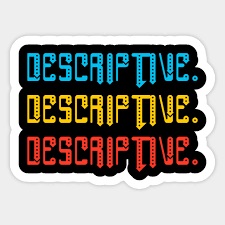El propósito general de este artículo es hacer un análisis semántico de la palabra “way”. Se centra en los diversos tipos de significado léxico que son valiosos en la comunicación lingüística. Se enfatiza que el significado de las palabras depende de sus relaciones con otras palabras y de todo el contexto, así como del uso del hablante. Al discutir este tema, se demuestra una clasificación de significado propuesta por Lyons.
Este artículo examina el carácter polisémico de la palabra, enfocándose en cada sentido. Al analizar, se consideran tanto sus significados nominales como uno adverbial. Se descubrió que el primer y básico sentido de esta palabra es «road«. También se describieron los otros significados como «a method», «a behavior«, «a direction«, «a distance«, «a lenght of time» y «an attitude». Posteriormente, la lista de modismos cierra este proceso de examen. Se ha estudiado y mantenido el orden de los sentidos y su frecuencia de aparición en los diccionarios.
A SEMANTIC ANALYSIS OF THE WORD “WAY”
The English language has a lot of words with multiple meanings. How often do you look up a word in the dictionary and find only one meaning listed next to it? Practically never! These meanings are sometimes totally unrelated and particularly troublesome for students who are learning English. According to Fry and Kress, the first 25 most commonly used words make up about one-third of all printed material in English, and the first 100 words make up about half of all written English. The word in question – way – occupies 78 place in the list of the most commonly spoken English words.
In order to enhance our understanding of the nature and complexity of meaning, different theories of meaning should be revised first.
WHAT IS A MEANING?
Language, whether used in oral or written form, is assumed to be the most crucial factor in human communication. The use of language as a means of communication is combined with the need to transfer a specific message and express a specific meaning. A number of scholars have made numerous attempts to define the meaning of ‘meaning’ and have proposed several ways of classifying meaning into different types.
Meaning can be conveyed by a variety of linguistic units, e.g. words as well as elements smaller or larger than words. Lexical meaning is composed of various components – types of meaning – which make up the lexicon of a given language and determine to a great extent the inner facet of the word (Hartmann 1996: 91-103).
THE DIVERSITY OF MEANING
Lyons (1981: 141-152) proposes three types of meaning: descriptive (or prepositional), non-descriptive (or expressive) and social meaning.

The descriptive meaning of a lexeme is widely considered to be the central factor in linguistic communication. Lyon makes a further distinction between two components of descriptive meaning, i.e. denotation and sense. According to him, both terms are equally basic relations and interdependent. He explains further that a lexeme which applies (in the relevant way) to other lexemes is related to them in sense, while a lexeme which refers to the outside world is related by means of denotation.

Unlike descriptive meaning, expressive one is non-prepositional in character and cannot be explained in terms of truth. It characterizes the particular meaning that individuals add to language when they speak; therefore, it provides additional effects to its central meaning.
The last kind of meaning, introduced by Lyons, is social meaning. It serves to “establish and maintain social roles and social relations” (p. 143). Lyons concludes that expressive and social meaning are dependent on each other. In addition, contrary to descriptive meaning, they are not unique to language; they can be found in both human and non-human systems.

One of the most serious problems encountered by linguists is the explanation of what varieties of meanings exist in language as well as how to separate them from one another. Lexical meaning refers to the individual word meaning, and a word commonly has different ways of meaning. Much of the meaning of a word depends on its associations with other words in a language; thus, lexical relations are central to the construction of meaning.
THE MEANING OF THE WORD “WAY”
The word way has adopted a variety of meanings. The senses below, together with their examples, have in general been arranged according to their frequency of appearance:
- 1) Way in the sense of the road or path:
- I do not think this is the right way (Macmillan).
- 2) Way in the sense of a method or manner:
- These vegetables can be cooked in several different ways (Longman).
- 3) Way in the sense of a course of conduct:
- They grinned at her in a friendly way (Oxford).
- 4) Way in the sense of a direction:
- The car was going the wrong way (Macmillan).
- 5) Way in the sense of a distance:
- We walked a long way yesterday (Cambridge).
- 6) Way in the sense of a length of time:
- A decision would still be a long way in the future (Macmillan).
- 7) Way in the sense of an attitude to a situation:
- In some ways, I would rather he was not involved (Longman).
- 8) Way in the sense of the area or position:
- I think he lives somewhere over London way (Oxford).
- 9) Way in the sense of a situation or condition:
- The economy is in a bad way (Oxford).
- 10) Way in the sense of a willingness:
- If she doesn’t have her (own) way, she sulks like a four-year old (Cambridge).
- 11) Way in the sense of by a large amount or very far:
- The cost of the car is way above my means (Macmillan).
IDIOMS RELATED TO “WAY”
In addition to analogous words, there are also many idioms and phrases associated with this word. The most notable examples are placed below:
by the way (informal) – used to introduce a comment or question that is not directly related to what you have been talking about:
- By the way, I found that book you were looking for (Oxford).
every which way (informal AmE) – in all directions:
- When I came back there was popcorn flying every which way (Macmillan)!
all the way (also the whole way) – 1) during the whole journey/period of time:
- She didn’t speak a word to me all the way back home (Oxford).
- 2) completely; as much as it takes to achieve what you want:
- You can feel that the audience is with her all the way (Oxford).
go a long/some way towards doing something – to help very much/a little in achieving something:
- The new law goes a long way towards solving the problem (Cambridge).
go back a long way – (of two or more people) to have known each other for a long time:
- We go back a long way, he and I (Oxford).
have come a long way – to have advanced to an improved or more developed state:
- Information technology has come a long way in the last twenty years (Cambridge).
No way! (informal) –used to say that there is no possibility that you will do something or that something will happen:
- There’s no way we could afford that sort of money (Oxford).
look the other way – to ignore something wrong or unpleasant that you know is happening instead of trying to deal with it:
- When one of their own friends or colleagues is involved in wrongdoing, people sometimes prefer to look the other way (Cambridge).
get your own way – to succeed in persuading other people to let you do what you want:
- She is very good at using her charm to get her way (Collins).
be out of the way – if a place is out of the way, it is a long distance from other villages or towns:
- It’s a lovely village but it’s a little out of the way (Cambridge).
lose your way
- 1) to become lost:
- We lost our way in the dark (Oxford).
- 2) to forget or move away from the purpose or reason for something:
- I feel that the project has lost its way (Oxford).
see which way the wind is blowing – to see how a situation is developing before you make a decision about it:
- I think we ought to talk to other members of staff and see which way the wind’s blowing before we make any firm decisions (Cambridge).
go your own way – to do as you choose, especially when somebody has advised you against it:
- It’s best to let her go her own way if you don’t want a fight (Oxford).
the other way round
- 1) in the opposite position, direction or order:
- I think it should go on the other way round (Oxford).
- 2) the opposite situation:
- I didn’t leave you. It was the other way round (Oxford).
one way or the other – used to say that it does not matter which one of two possibilities happens, is chosen or is true:
- We could meet today or tomorrow – I don’t mind one way or the other (Oxford).
have it your own way! (informal) –used to say in an angry way that although you are not happy about something that somebody has said, you are not going to argue:
- Oh OK, then. Have it your own way (Oxford).
the way of the world – the way that most people behave; the way that things happen, which you cannot change:
- The rich and powerful make the decisions – that’s the way of the world (Oxford).
ways and means – the methods and materials available for doing something:
- With computer technology, even people working on their own have the ways and means to produce professional-looking documents (Cambridge).
the way to somebody’s heart – the way to make somebody like or love you:
- The way to a man’s heart is through his stomach (Oxford).
be under way – to be happening or being done:
Plans are under way for a new link road (Macmillan).
As it can be seen, the word way may extend from its nominal meanings, such as ‘a means of passing from one place to another’, which is its primary sense, ‘style of doing something’, and ‘a particular conduct’, among others, to its adverbial meaning ‘very far, extremely’. There are also another senses of this word as ‘a willingness’, ‘a situation’ or ‘a condition’, and ‘a position’, among others, when used in colloquial speech.
BIBLIOGRAPHY
- Hartmann, R. R. K.1996. Solving language problems: from general to applied linguistics. University of Exeter Press.
- Lyons, John .1981. Language and linguistics. An introduction. Cambridge: Cambridge University Press.
- Fry, Edward B., Kress, Jacqueline E.2009. The reading teacher’s book of lists. Jossey-Bass.
Dictionaries:
- Cambridge advanced learner’s dictionary (CALD) on CD-ROM.2003. Cambridge University Press.
- Longman dictionary of contemporary English. 1995. Harlow: Longman.
- MacMillan English dictionary for advanced learners. 2007. MacMillan Education.
- Oxford learner’s thesaurus on CD-ROM. A dictionary of synonyms. 2008. Oxford University Press.
REFERENCIAS IMÁGENES
- Figura 1. Lorena, M. (8/10/2019). How Architecture Experience and Meaning Uplift Your Design Quality [fotografía]. Recuperado de: https://www.mlldesignlab.com/blog/architecture-experience-meaning-uplift-design-quality
- Figura 2. McCarthy, T. (3/03/2020). Definition of descriptive [fotografía]. Recuperado de: https://encrypted-tbn0.gstatic.com/images?q=tbn%3AANd9GcTztkBcvb8g5Sy9tEOY80laGInKBJKwm-lL6w&usqp=CAU
- Figura 3. Bindal, R. (09/09/2019). Are you expressive? [fotografía]. Recuperado de: https://thelifebrewery.com/are-you-expressive/
- Figura 4. Ormazabal, I. (30/06/1011). Definición de social [fotografía]. Recuperado de https://conceptosydefiniciones.files.wordpress.com/2011/06/social.jpg?w=300&h=273
Justyna Wysocka

